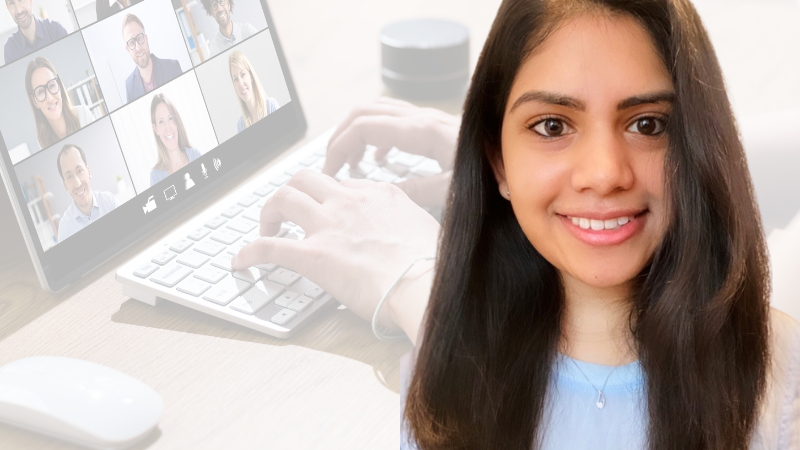28 February, 2024
A junior doctor whose PhD project was funded by the European Respiratory Society (ERS) has praised the Society’s support for the next generation of researchers following the completion of her project.
Sai Ram, from Oxford, UK, successfully defended her thesis in December 2023. The objective of her work was to ‘Investigate how future conferences can be designed to better cater to attendees’ needs’ – a project which started in 2019 and continued throughout the height of the COVID-19 pandemic, which heightened its importance.
With the next round of ERS funding for a PhD project due open soon, Sai encouraged those in a similar position to follow in her footsteps after her positive experience of ERS’s support.
“ERS has helped me grow as a researcher,” said Sai.
“I was given so much freedom to explore and develop new ideas; you never feel alone but you have the autonomy to go with your passions and really make it your own. The skills I picked up have without doubt made me a better medical education researcher and doctor.
“Anyone who is passionate about medical education and wants to do important research with an organisation which is so vast should grasp the opportunity.”
Sai’s project featured four studies which aimed to gain a better understanding of participants’ needs from online conferences, narrow knowledge gaps of conference participants and to support learning and community building through online conferences – ultimately to inform and improve future events.
Her work on online health conferences became more prominent than anybody could have predicted when the world went into lockdown due to the COVID-19 pandemic.
Sai studied in Liverpool and worked as a doctor in Oxford, UK, before joining the University of Bern in Switzerland as her host centre for her PhD.
She said: “When we were still in those first few months of establishing which research questions we wanted to answer, that’s when COVID-19 really hit.
“I met with the ERS team and together we looked at what the most useful research topics were going to be. We made big changes but no matter the challenge – it meant we were doing real-time research which was highly relevant and important.”
Sai feels that the support she received from ERS throughout her PhD provided huge benefits and the findings of her work immediately supported ERS activity.
“Everybody was very welcoming, we had our first meeting and then COVID-19 really took off and almost everything became virtual. When the ERS Congress 2020 suddenly became virtual, this became a big priority for the Society, and consequently, a prominent area which could be researched in a timely manner.
“When it came to implementation, the ERS office provided so much support. The Society has one of the best populations for a researcher – it already has an A-team focused on online events and conferences, it’s multidisciplinary, it’s international and has so many professionals at all stages of their careers.
“It has been constant support whenever I needed it, whatever the query I had, no matter how big or small. Resources were always provided when I needed them, and it was always a group discussion to come up with the projects and their execution. The ERS was also very open to new, innovative aspects of integrating medical education, making it a great experience all round.”
Learn more about the benefits of membership – including for early career researchers.





